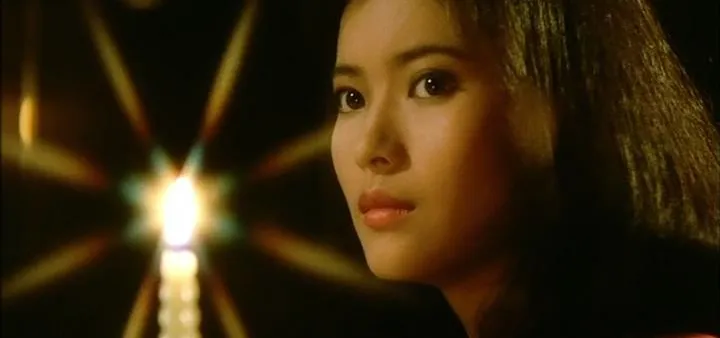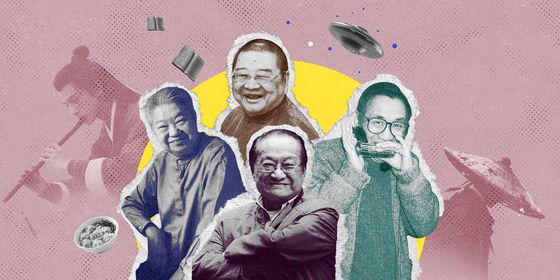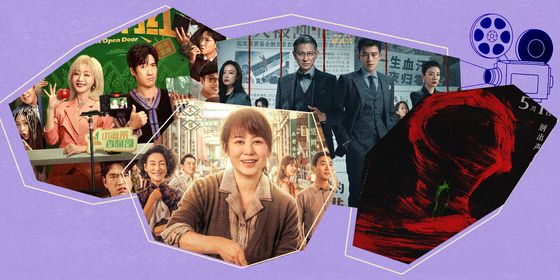“Not crazy, just persecuted”—death of Hong Kong actress and MeToo figure highlight society’s treatment of sexual harassment and mental health
As the chengyu goes: “A beautiful girl often suffers a harsh life (红颜命薄).” Fans are quoting the lines in mourning of actress Yammie Lam Kit-ying, who was found dead at the age of 55 in her apartment in Hong Kong on November 3.
Police have so far discovered no suspicious circumstances after a preliminary investigation into the death of Lam, who was last seen alive on October 31. However, as one of the early symbols of the #MeToo movement in Hong Kong, Lam’s life and death has called Hong Kong society to examine its attitudes toward mental health, sexual assault, and other abuses in its entertainment industry.
Born in 1963, Lam joined the Hong Kong Television Broadcasts Limited (TVB) at the age of 20, and graduated from the its actor training class a few months later. A classmate of famous stars Maggie Cheung and Carina Lau, Lam was dubbed “the prettiest among the five major TV stations,” and got cast in several TV series.
However, Lam’s personality always clashed with her bosses in the industry. In 1984, just as her star was rising, Lam was blacklisted by the TV industry, supposedly for refusing TVB’s offer of a five-year contract renewal (she only wanted two years). When she began getting roles again, she refused allegedly several of them for reasons such as the character being too ugly or the costume too hot—though later, audiences began questioning if the roles she refused were erotic ones.
In Hong Kong’s entertainment world in the 1980s and 90s, it’s not rare for actors to suffer punishment for crossing the executives. Andy Lau, one of the “Four Heavenly Kings of Cantopop,” had also been “frozen” for nine months for refusing to sign a five-year contract. Singer and actor Dicky Cheung was blacklisted for one year, because he requested a higher payment after learning that the show he starred in, 1996’s Journey to the West, earned 200 million HKD—yet Cheung, its lead actor, was only paid 90,000 HKD.
Actor Alex Fong Chung Sun was even harder hit: After quitting a 1996 TV series, on the show was completely differently from what he’d been told by the director and producer, he received no work for two years and had to leave the company.
Some of these once-blacklisted stars later resurrected their careers, but Lam wasn’t as lucky. Apparently losing faith in Hong Kong, Lam moved to Taiwan, but returned shortly after, supposedly because she refused to use the “casting couch.” Meanwhile, her romantic relationships were becoming regular tabloid fodder: Supposedly, two men of the men she dated committed suicide, while another, after many years with her, cheated on her with her good friend.
Still, Lam had some notable success in this period. She stared in the TVB series The Greed of Man in 1992, and took part in Steven Chow’s 1994 movie A Chinese Odyssey Part One: Pandora’s Box. Both are considered classics today, and Lam’s performances were widely praised.
Unfortunately, this didn’t signal a comeback for Lam as many had hoped. In 1995 and 1996, both of Lam’s parents died in quick succession; in 1998, she was involved in a car accident, which was later speculated to have affected her mental health. Between 1999 and 2004, Lam was admitted into mental health institutions several times for depression and attempted suicide. In 2006, she was declared bankrupt, and reportedly lived on government welfare of 3,700 HKD per month.
By this time, the once-adoring media had completely turned against Lam: Paparazzi competed to take photos of her with shabby clothes and gray hair, usually accompanied by captions like “crazy,” or stories of her wandering the street in her nightgown or stealing leftovers from restaurants. Another tabloid favorite was to publish these photos along side a “before” photo of Lam in her “beauty” days.
In 2013, however, Next Magazine obtained a video of Lam claiming that she had been raped by two “big brothers” of the Kong Kong entertainment industry. One, who was recently deceased, had raped her after consuming alcohol. The other raped her after breaking into her hotel room at night during film production in Singapore, and his influence in the film industry dissuaded her from reporting the incident to the Singaporean police. She showed interviewer the scars on her wrist from suicide attempts, and confirmed the names of the two men—but the latter was edited out before publication.
In January 2018, a leak of the alleged original video confirmed the men’s identity as Eric Tsang, a well-known Hong Kong actor and director, and Alan Tang Kwong Wing, a film producer who passed away in 2011. The accusation against Tsang was soon seconded by talent agent Grace Han, who claims Tsang has assaulted more than one woman. In response, Tsang denied Lam’s allegations and sued Han for defamation. As for Lam, no investigations were ever opened on the two men she accused, and the public cast doubt on her claims due to her alleged “craziness.”
Though justice was never done for Lam, she was well aware of her public image and how it affected the public’s reaction to her accusations. After her death, her friend Yang Manli revealed that the Lam had been hoping to make a comeback—and the film she wanted to do was a Chinese version of One Flew Over the Cuckoo’s Nest, in order to prove she was “not crazy, just persecuted.”













